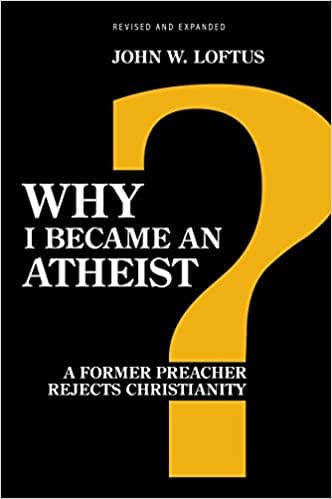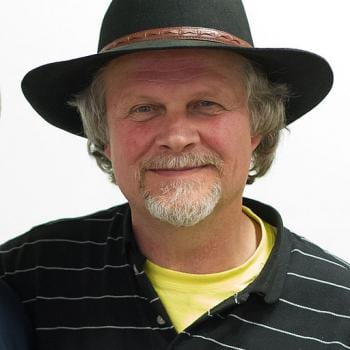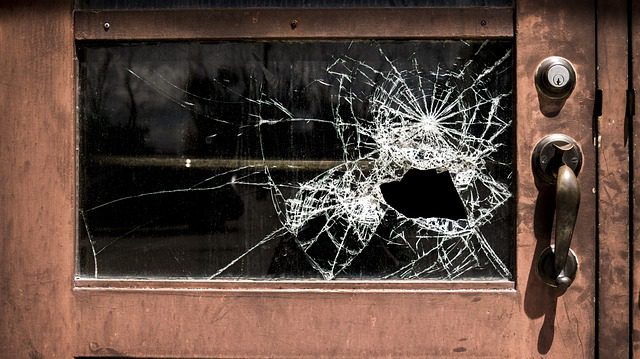
This issue has come up again, after my critique of former Catholic and singer Audrey Assad raised a firestorm of protest among several leftish Catholics. It turns out that I retracted it and apologized, after she informed me that she had read a lot of apologetics, whereas my “primary theory” for her departure from Catholicism was a lack of reading of same. She graciously accepted my apology, yet these other Catholics (including one really well-known and widely published one) seem — oddly — quite unfamiliar with Jesus’ injunction to forgive others 70 x 7, and continue on with their slander of my name and reputation.
While I retracted my article because it had erroneous information (that I learned about after I wrote it, but which was too presumptuous for me to assume or posit), I made it clear on her Twitter page in several comments, that I was not renouncing the very principle of critiquing deconversion stories that are already “out there” in public. Nor did Audrey herself object to that, as she stated (“I have no qualms with people publicly commenting on my public confessions”).
Reading my loudmouthed, acid-tongued critics, one might get the impression that all I do with my time and in my life’s work (according to their jaded, inaccurate perception) is pick away at, condemn, totally misunderstand, have no sensitivity towards whatsoever, personally attack (without cause) folks who have been brought to an agonized place where they feel they must abandon Catholicism. I have written literally 3,850 online articles. Out of those, I can recall only five — not counting my retracted one — that were devoted to people who left the Catholic faith (Anne Rice, Rod Dreher, Damon Linker, Michael Boyle, and Mindy Selmys: all quite vocal in public about their departures). This is one out of every 770 articles that I write, or 0.13%. Nor does this “genre” play any part whatsoever in any of my fifty published books.
I have, however, done quite a few critiques of atheist deconversions out of Christianity, that can be seen in the second-to-last section on my Atheism & Agnosticism page.
But why do this at all (I can “hear” many people wondering)? How is it not personally “intrusive” or “abusive”? It’s a fair question, and I have explained it in the past, with regard to former Christians who become atheists. The same basic rationale is present in critiques of former Catholics: just substitute “Catholicism” for the wider category of “Christianity”.
The following was written to a former evangelical Protestant; now an atheist; someone I have met in person several times and even invited to my house:
One can listen and extend sympathy in one situation and critique ideas in another. The two aren’t mutually exclusive. I simultaneously critique atheism and try to find common ground with atheists, too, in an attitude of respect and listening (exactly what I’m doing right now). When we got together at the restaurant, I spent a great deal of time listening: probably at least as much as I talked (especially with [name]); and there was only one o’ me and six o’ y’all.
If you and I were sitting somewhere and you said something like, “these are the reasons why I left Christianity; what really hurt me and caused me a lot of pain . . .” etc., then absolutely that would be a time for listening, friend to friend, man to man. Surely you would know that I would disagree with many of your reasons, but I would listen and hopefully be a friend.
But as an apologist, generally speaking (in the public arena), I have to defend Christianity, and that includes critiquing reasons given to reject Christianity. If those reasons are inadequate, then it is my task to show how and why they are, in order to prevent existing Christians from using them as reasons to leave (which is, of course, a large part of the reason for these deconversion stories: to persuade others to forsake Christianity as well).
In effect, these deconversion stories are the atheist equivalent of Christian preaching or evangelism. They are intended to persuade; to make the movement grow; to embolden others to “come out” and do the previously unthinkable thing: reject Christianity: very much in internal purpose like our own testimonies.
Therefore, we are equally entitled to critique them; since they are presented in public in the first place, not in private, man-to-man, eye-to-eye, sitting by the fire or in some restaurant talking about the problems of life, kids, work frustrations, etc. Public material (that attacks Christianity) is fair game. Surely you can’t object to that!
If you want to encourage listening in a friendship context, I’m all for that. If you want to say atheists should be treated charitably, I’ve always said that and try to model it as best I can. And I think you know that, having met me at least half a dozen times now.
If you say, on the other hand, that we can’t defend our beliefs against frontal attacks or critique the ideas in deconversion stories, I must respectfully disagree. But we do have to do that without attacking people. (9-16-15)
In a debate on this topic with several atheists, I wrote:
Anyone with an IQ above that of a pencil eraser understands that legalistic fundamentalist sects do not represent all of Christianity. That’s not even arguable. It’s perfectly self-evident.
In my critique of [Name]’s story, I chided her for seemingly equating the despotic form of Christianity she was raised in, with larger Christianity. In another paper, she was more nuanced, and I praised her for it (she wrote: “I didn’t blame Jesus or Christianity for the actions of these angry Christians”).
That’s all I’m calling for: rudimentary fairness in defining a thing and critiquing it, rather than the straw man fallacy.
***
I agree with you that conversion processes are extraordinarily complex. I don’t question that aspect in my recent critiques, and confine myself mainly to the question of, “is the reasoning in these stories sufficient to compel one to abandon Christianity?” Since that is the realm of ideas only, and not experience and social milieu and Kuhnian transformations, and all the rest, I can do one thing without disagreeing with you on the complexity of conversion processes. I’ve been through them myself, so I know firsthand.
I’m merely objecting to writing entire pieces about extreme, fundamentalist versions of Christianity (all three stories I have recently critiqued were of this same nature), and then implying again and again that these represented “Christianity” period. That’s the logical fallacy, and is throwing the baby out with the bathwater.
What struck me is how they ditched that and then went right to atheism, as if there weren’t any alternative forms of Christianity that weren’t simple-minded, or abusive, or whatever. It seems to me that if someone is committed to Christianity in the first place, and finds that the brand they are in falls short, that they look for other better forms, before tossing the whole thing.
I can’t sit here as an apologist and let these stories go out uncritiqued, when they unfairly portray Christianity in such an unfavorable light, by equating it with its worst extremes.
It would be like me saying, “I rejected atheism because of Stalin and Mao.” You will certainly say, “hey! That’s not what atheism is about!”
***
I often delve into the fact that most of these people (indeed most Christians, period), don’t study apologetics, so as to know why they believe what they believe. Lacking that, they are then left wide open to rational criticisms. Since they can’t explain their Christian beliefs upon the first bit of questioning from non-Christians, they can easily be dissuaded from them — especially in environments that are hostile. And so we see exactly that happening on college campuses.
This is a major reason why I am an apologist. I try to help Christians synthesize reason and faith, so they don’t get taken in by fallacious and insufficient reasoning and intellectually inferior alternative worldviews.
***
There’s nothing whatever wrong with it. It is a public, respectful critique of public material that directly takes on a major world religion, of which I am an apologist.
The only objection to it would be from a postmodernist subjective (virtually relativist) viewpoint, whereby no one is allowed to criticize anyone else’s views at all because that is fallaciously thought to be a “personal attack.”
A person is not his or her views. (7-19-17)
And from a dialogue with two atheists:
Since these are public (else I wouldn’t know about them in the first place), it’s reasonable to assume that they are more than merely subjective / personal matters, that have no bearing on anyone else. No; it is assumed (it seems to me) that these stories are thought to offer rationales of various sorts for others to also become atheists or to be more confirmed in their own atheism. This being the case, since they are public critiques of Christianity (hence, fair game for public criticism), as a Christian (Catholic) apologist, I have a few thoughts in counter-reply.
I am not questioning the sincerity of these persons or the truthfulness of their self-reports, or any anguish that they went through. I accept their words at face value. I’m not arguing that they are terrible, evil people (that’s a child’s game). My sole interest is in showing if and where certain portions of these deconversion stories contain fallacious or non-factual elements: where they fail to make a point against Christianity (what Christian philosopher Alvin Plantinga calls “defeating the defeaters”), or misrepresent (usually unwittingly) Christianity as a whole, or the Bible, etc.
Agree or disagree, that is my motivation. (7-23-17)
And yet another discussion with one atheist:
I’ve been catching all kinds of hell lately from many atheists for having the audacity to critique atheist deconversion stories as inadequate arguments against Christianity. You’d think I had attacked mom or apple pie or summer days at the lake, to see all the fuss and stink.
But we see that — as always — it’s open season on Christian conversion stories. Why would that be? Is it that we’re so relentlessly unreasonable and y’all are invariably so reasoned (and love science, etc., like we supposedly don’t), so that a critique from us of your stuff is impossible beforehand, by the nature of the case? :-)
I’m all for atheists critiquing our arguments in our conversion accounts (insofar as they are there). I just marvel at the thin skin of so many atheists when we deign to do the same thing back. (7-24-17)
Here’s an exchange with an agnostic, with whom I am on quite friendly terms:
The deconvert who takes the trouble to publicly write about their reasons for leaving Christianity, is making the claim, “Christianity [and the Bible] are false because of d, e, f , . . .”
In other words, if they want to “just not believe” and go about their business and not pester Christians for their beliefs, or in effect, “preach atheism” then the question to be asked is, “why are they making this a public issue and making claims that can now be examined in the public arena of ideas and inquiry?” If they aren’t willing to engage on that stage, then why did they write their story? Just for the atheist choir?
If they write about it in public, then they are in effect implying that they are willing to engage one who disagrees. Yet when I come around and disagree, it’s 90% rank hostility for even daring to think of doing such an outrageous thing (with some of the more well-known atheists, like John Loftus, getting the most angry and out-of-control offended). It makes no sense.
If you want to be a blissfully happy atheist who can’t defend why you are one (just like most Christians can’t defend their beliefs, either: which is why I do what I do), then go do it and be silent. But if you “come out and fight,” don’t urinate your pants and moan if an apologist like me attempts to be a gadfly and puncture this bubble of reality that you have constructed.
All I’m doing as an apologist is taking a critical look at d, e, f, and any other reasons given, to see if they can stand up to scrutiny. So far, in my opinion, with over 25 or so such analyses done, I’ve yet to find a former Christian whose reasons d-f, etc. could stand up to and withstand critique. That is my experience. I can’t change it. I don’t claim that it’s universal. But it is a striking unanimity of theological ignorance and straw men.
Therefore, I conclude that the given rational reasons in these particular cases, for rejecting Christianity, fail.
In order to overcome those arguments of mine, the atheist or agnostic has to show how my counter-reasoning goes astray. So far, few if any want to do that. (5-2-19)
From my article, Cordial Dialogue with a Deconvert on Deconversion (10-7-19):
I come along — the Christian apologist — turn the tables, and show that any given deconversion story (including one I found on your site) does not in fact provide a plausible rationale for rejecting Christianity. At best, the typical one (from the ubiquitous former fundamentalist) shows how fundamentalism is unworthy of belief. But that’s like saying that a rejection of the Detroit Lions is a rejection of the NFL or football, period.
***
[I]t is posted in a social setting where the overall thrust and goal is to discredit Christianity. This is patently obvious. Such stories provide the backdrop and framework for those who are struggling or on the fence or doubting as Christians, to start thinking in a different way, because “we are what we eat.”
The deconversion story serves precisely the same “exhorting” or “confirming” function in atheist circles that the Christian testimony (we used to jokingly refer to them as “testiphonies”) does in Christian circles. We hear those (in either camp) and think, “hey, I’m not the only one who thinks and feels like that!”).
The deconversion story remains one piece in the overall atheist agenda (especially in online sites like yours) to undermine and discredit Christianity as untrue and harmful.
Thus, it makes perfect sense for the defender of Christianity to point out what we believe are the inadequacies and glaring logical and factual shortcomings of any given such story. Why should this surprise you?
And from Part II (10-9-19):
I am responding (with these deconversions) to what is written, not what is not written (which is only common sense). There may be all the submitted reasons in the world for why they changed their view, but I can only respond to what I see. And in this case, and all others so far in such analyses, I have not seen sufficient reason to reject all of Christianity.
You guys are always demanding reasons from us. I’m simply doing the same thing back. And it’s universally disliked, believe me.
To critique another’s reasoning is not to make a personal attack. I could see how it might feel that way, but it is not, because a person is not the same as his or her beliefs. They are two different things. I’m disagreeing with you now, but I am not attacking you personally to the slightest degree.
The above, then, are some of the many reasons why I think critiquing a deconversion is perfectly permissible and even a necessary part of apologetics. People may disagree in good faith, but what they can’t do is assert one or both of the following about me:
- That I have no thought-through reasons for believing why I do about this, or
- That I am motivated by ill will and malice and hostility and contempt, rather than by a Christian concern for souls and their well-being.
And of course it would be nice to actually have normal, mature conversations with all (or any of) these critics of mine. I’m all for that. You disagree with me? Come talk to me (and get the chip off your shoulder or it’ll be a futile effort). Let’s have a meeting of minds and souls. But that virtually never happens. My most vocal, vehement critics almost always prefer getting into an echo chamber with like-minded folks and gossiping and slandering. Heaven forbid that my side is ever fairly aired or interacted with!
***
Photo credit: Zorba the Geek (4-7-17). Broken stained glass window in St Andrew’s, Langford. [Geograph / CC BY-SA 2.0 license]
***
Summary: I explain the various reasons why I feel that it is perfectly ethical and necessary as part of apologetics, to critique deconversion stories (of former Christians or Catholics).


























